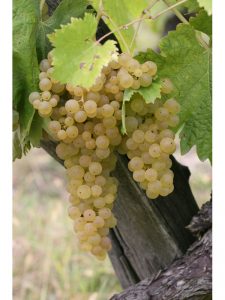First Harvest of New Vine Varieties
 The Bureau National Interprofessionnel du Cognac (BNIC) is the organisation whose role is to promote, protect and develop the Cognac Geographic Indication and its culture. In September their technical arm, Station Viticole, reported that one of their research programmes had seen new varieties of vines, resistant to mildew and powdery mildew, harvested in the region. Six experimental plots are the result of 20 years of collective research work in partnership with the French National Research Institute for Agriculture, Food and the Environment (INRAE), the French Institute of Vine and Wine (IFV), and the main producers in the cognac industry. The newly harvested grapes will now be vinified and the wines distilled to help enable a better understanding of the cultural characteristics of these new varieties as well as the oenological qualities of the grapes and the profile of the eaux-de-vie obtained. The Cognac industry has been working for many years to preserve its terroir and natural resources. This long-term research programme, developing new vine varieties, is just part of the plan and in the long term should (1) reduce, by up to 90%, the phytosanitary treatments against mildew and powdery mildew, the main diseases affecting vines (2) produce distillation wines corresponding to the qualitative requirements of cognac production and (3) anticipate the effects of climate change.
The Bureau National Interprofessionnel du Cognac (BNIC) is the organisation whose role is to promote, protect and develop the Cognac Geographic Indication and its culture. In September their technical arm, Station Viticole, reported that one of their research programmes had seen new varieties of vines, resistant to mildew and powdery mildew, harvested in the region. Six experimental plots are the result of 20 years of collective research work in partnership with the French National Research Institute for Agriculture, Food and the Environment (INRAE), the French Institute of Vine and Wine (IFV), and the main producers in the cognac industry. The newly harvested grapes will now be vinified and the wines distilled to help enable a better understanding of the cultural characteristics of these new varieties as well as the oenological qualities of the grapes and the profile of the eaux-de-vie obtained. The Cognac industry has been working for many years to preserve its terroir and natural resources. This long-term research programme, developing new vine varieties, is just part of the plan and in the long term should (1) reduce, by up to 90%, the phytosanitary treatments against mildew and powdery mildew, the main diseases affecting vines (2) produce distillation wines corresponding to the qualitative requirements of cognac production and (3) anticipate the effects of climate change.
